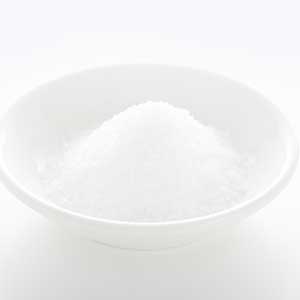
News
אוק . 31, 2024 23:17 Back to list
Advancements in the Production Techniques of Polyglutamic Acid and Its Applications
Polyglutamic acid (PGA) is an innovative biopolymer that has garnered significant attention in recent years due to its remarkable properties and applications. It is a naturally occurring polymer produced by various microorganisms, particularly certain strains of bacteria such as *Bacillus subtilis*. The production of polyglutamic acid involves the biosynthesis of the amino acid glutamic acid, where multiple glutamic acid units are linked together to form a long chain.
One of the key advantages of polyglutamic acid is its biodegradable nature, which makes it an environment-friendly alternative to synthetic polymers. As global concerns over plastic waste continue to rise, PGA offers a sustainable option for various industries, including agriculture, cosmetics, and food. In agriculture, PGA is recognized for its ability to retain moisture in the soil, thus enhancing water efficiency and promoting healthier plant growth. This characteristic makes it particularly valuable in areas prone to drought or water scarcity.
In the cosmetics industry, polyglutamic acid is praised for its exceptional hydrating properties. It is capable of binding water molecules, which helps to keep the skin hydrated and plump. This has led to its incorporation in a range of skincare products, from serums to moisturizers, appealing to consumers seeking effective anti-aging solutions.
Food applications of PGA are equally promising. Its thickening and gelling properties make it suitable for use as a food additive, enhancing the texture and stability of various food products. Moreover, being a natural ingredient, it aligns with the growing trend towards clean-label foods, appealing to health-conscious consumers.
polyglutamic acid production

The industrial production of polyglutamic acid can be achieved through fermentation processes, utilizing inexpensive raw materials. This not only reduces production costs but also promotes the scalability of PGA manufacturing. Genetic engineering and metabolic engineering of microbial strains are being explored to enhance yield and optimize production processes further.
As research progresses, it is likely that polyglutamic acid will see even broader applications. Scientists continue to investigate its potential in biomedical fields, with studies looking into its use in drug delivery systems and tissue engineering. The versatility and eco-friendly nature of PGA make it a promising candidate for future developments in various sectors.
In summary, polyglutamic acid represents a significant advancement in biopolymer science, combining functionality with sustainability
. Its diverse applications across industries make it a focal point in the search for environmentally friendly solutions, heralding a new era of innovation in materials science.-
Polyaspartic Acid Salts in Agricultural Fertilizers: A Sustainable Solution
NewsJul.21,2025
-
OEM Chelating Agent Preservative Supplier & Manufacturer High-Quality Customized Solutions
NewsJul.08,2025
-
OEM Potassium Chelating Agent Manufacturer - Custom Potassium Oxalate & Citrate Solutions
NewsJul.08,2025
-
OEM Pentasodium DTPA Chelating Agent Supplier & Manufacturer High Purity & Cost-Effective Solutions
NewsJul.08,2025
-
High-Efficiency Chelated Trace Elements Fertilizer Bulk Supplier & Manufacturer Quotes
NewsJul.07,2025
-
High Quality K Formation for a Chelating Agent – Reliable Manufacturer & Supplier
NewsJul.07,2025
